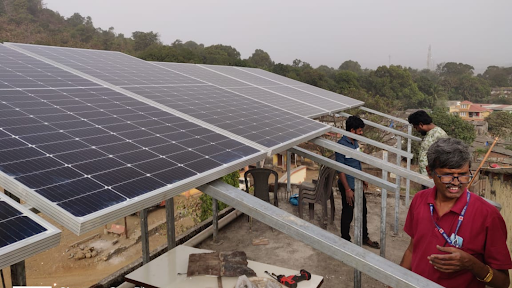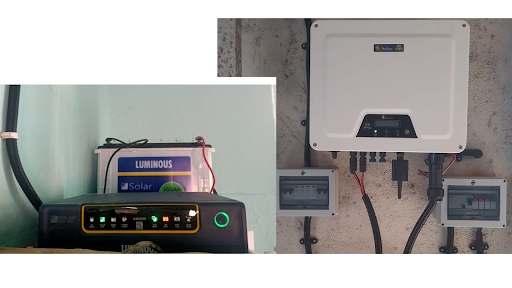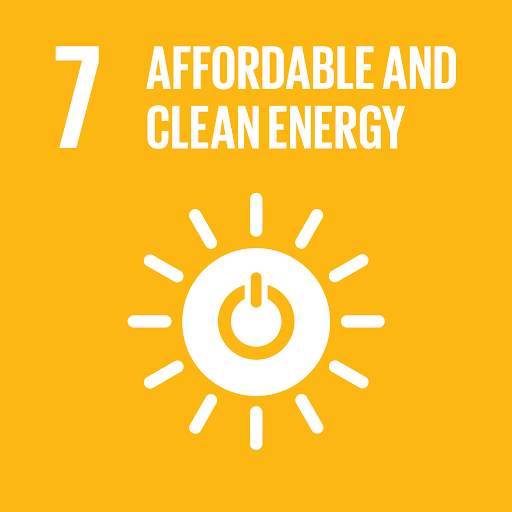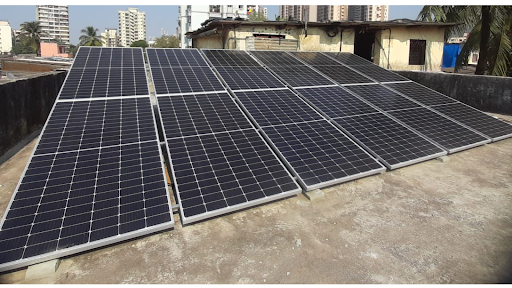At Seva Sahayog, we believe that to empower the underprivileged schools it becomes necessary to enhance the quality and sanctity of the power supply. Solar energy is a free source of renewable energy and can be used even in remote areas, where electricity from the grid cannot be accessed. Even today most schools in urban and rural areas of Maharashtra, either do not have electricity or lack a steady supply of electricity.
Unaffordability of electricity and frequent cuts obstruct the education of students severely. Schools have been raising demands to the government for providing solar panels to solve power outage issues. In some schools, new LED screens and projectors were unused due to this issue.

This project, along with solar panels, provides solar inverters to schools for the working on projectors, smart television sets, computers and other devices. It helps students to continue their education effortlessly. The school encourages the usage of solar energy while keeping the environment clean. Through this project we have the power to make a substantial change that can change the course of education for future generations.

Objectives
- To connect remote schools with renewable energy sources i.e. solar energy so students can have access to modern educational facilities such as projectors, computer labs, etc.
- To create awareness about the importance of renewable energy, reducing greenhouse emissions and keeping our environment clean amongst students from a young age.
- To install solar panels (small solar plant) that require a one-time investment for installation in schools and make them self-reliant in terms of electricity.
Impact
Seva Sahayog Foundation in its endeavours for the Seva Kiran Project, has successfully facilitated solar projects in 114 schools in Maharashtra, with installed capacity of 535 kilowatt. This would save 53500 units from grid electricity per month, resulting in saving of almost Rs.57 lakhs annually for all schools.
In terms of Environmental protection, the saving is equivalent to avoiding emission of 409 Tons of CO2. (1unit = 0.85 kg of CO2) or planting 2600 trees (1000 units = 54 trees)

In 2023-2024, The Solar Project has substantially reduced the financial burden of electricity costs on schools while promoting environmental awareness among students and staff. With an annual cost saving of ₹27,61,200 across all schools (an average of ₹83,500 per school), the project has enabled the reallocation of funds to other crucial developmental resources. Infrastructure support has been provided to six schools for site preparation, and all 33 schools have received additional inverter backups, ensuring uninterrupted power supply during emergencies.
The installation of solar panels has led to an impressive annual reduction of nearly 180 tons of carbon emissions. This sustainable initiative has provided 16,877 students with consistent access to electricity, supporting thousands of additional hours of learning. The project not only enhances the educational environment but also instils the importance of renewable energy and environmental stewardship in the next generation
Note: All the figures are based on 9 months working.
Geographical Reach: Mumbai, Thane, Vasai, Kalyan, Wada, Karjat, Raigad, Palghar’
United Nations Development Programme’s
Sustainable Goals aligned with Solar Installation





